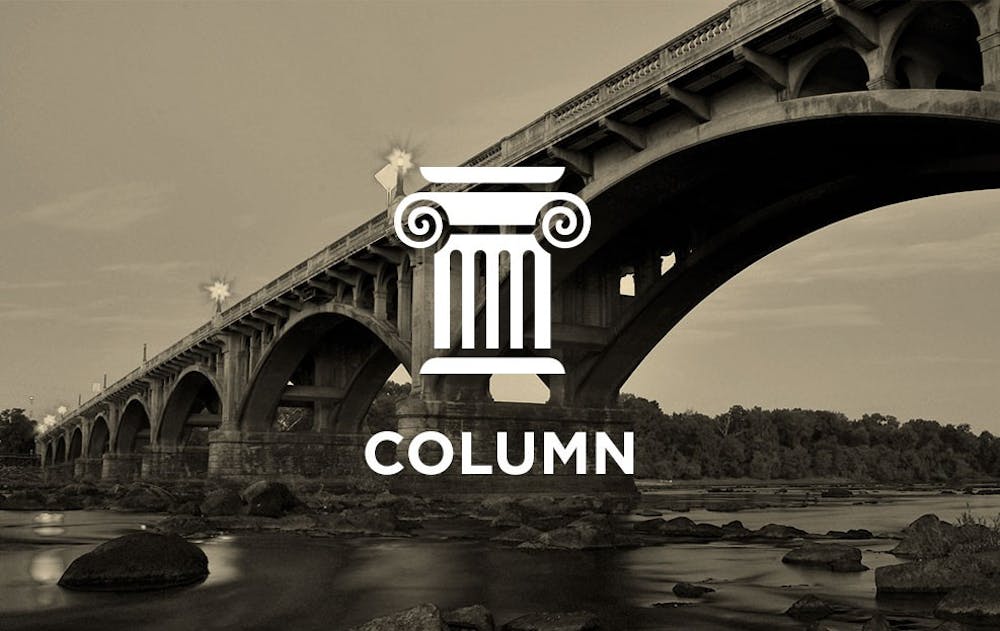This past Saturday a vulgar and egotistic nativist with no political experience triumphed in the South Carolina polls. To the roughly 67.5 percent of Republican voters who did not or will not vote for Donald Trump, this is rather painful. It seems that negative stereotypes of Southerners are more true than we would like. But for me, an evangelical Christian, the most galling part of the outcome is that more evangelicals voted for Trump than for any other candidate. Trump received 33 percent of the evangelical vote in South Carolina compared to Cruz’s 27 percent and Rubio’s 22 percent.
Evangelicals have a history of voting for morally upright, preferably Christian candidates who hold to traditional values. Yet this precedent seems to have been cast aside in favor of Trump, who certainly does not ascribe to traditional values. Trump has bragged about his adulterous relationships, divorced two wives, and put his companies through bankruptcy four times. His campaign tactics have been marked by a reckless disregard for the truth, a willingness to compromise American principles to earn the support of xenophobes and a penchant for crassly slandering his opponents. And he does not seem to have any regrets, saying recently that he didn’t feel that he had to ask God for forgiveness.
Confessing your sins and asking God to forgive them is an essential doctrine of Christianity, so by this statement, Trump gives the lie to his own claims that he is a Christian.
Any Christian could tell you that asking for forgiveness involves two things — admitting that you were wrong and placing yourself at the mercy of someone else. Trump seems to struggle mightily with the first requirement and as to the second, has relentlessly marketed himself as being beholden to no one. Considering his own words, it’s no stretch to apply that defiant individualism to his relationship with God as well.
Whether he is unintentionally demonstrating his profound ignorance of scripture, waving a childhood bible like some kind of talisman, boasting shamelessly about his wealth, or attacking the faith of rivals despite not being an active member of any church, it is clear that Trump is not a Christian. But some would say Mitt Romney wasn't a Christian, you may point out. And you would be right. I’m not attacking Trump for not being a Christian, but for pretending to be one for political convenience.
I’m deeply disappointed that so many evangelicals would swallow Trump’s blatant pandering and vote for him. Mitt Romney may not share my core beliefs, but he obviously believes in a higher power to which he is accountable for his words and actions. Examining Trump’s life, one finds precious little justification for saying the same of him.
He has always acted in a relentlessly self-interested and self-congratulatory way, and seems to view himself as his own higher power, despite what he may claim. A man who idolizes himself and looks to his own interests above all else is not fit to be the president of our great nation. Government service should be viewed as a noble duty to be performed by the most qualified yet selfless people in our society. Looking at Trump’s life story as well as his remarks on the campaign trail, it cannot be rightly claimed that Trump is such a man.
I recently heard Eric Metaxes, a conservative talk show host, raise a theoretical question for Trump to prove that he is not in this for himself but for his country — would he consent to being the vice president if he did not win the Republican nomination? Would Trump submit himself to serving as vice president instead of president, using his gifts to serve the country even if it required humbling himself? This is an excellent test, but one which I fear he would fail, considering his history.
That so many evangelicals have gone after this candidate so unlike their usual choices points to the fact that they feel threatened by a progressive political climate intolerant of their religion and values. Many have come to believe that they need a strongman with a powerful personality to stand up for them and reclaim the idealized America of the past. What his supporters overlook is that Trump, who makes so much of not being beholden to anyone, will not be beholden to them either. If he makes it to the White House, who really knows what he will do? He has changed his political persuasion several times already — who’s to say he won’t have another change of heart while in office?
He could inflame tensions with our rivals, alienate friendly countries like Mexico and Japan, wreck the international trade that underpins the global economy, and worsen the partisan deadlock in Washington by his abrasiveness and extreme positions. Of course, he might make an about-face from the way he has campaigned and do none of these things, but my point is that we don’t and can’t know.
A man as self-obsessed and lacking in morals as Trump cannot be trusted to lead our nation and evangelicals should discern this even more than others, given their dedication to Christianity and by implication its teachings on humility and self-control. It would be prudent to examine how closely the characters of presidential candidates match the biblical qualifications for overseers of the church.
Unless evangelical voters come to their senses and change their minds about Trump soon, his bid for the Republican nomination will be all but unstoppable.

